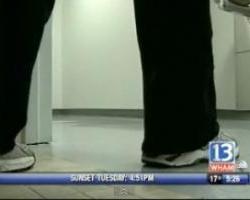Sponsored Links
Main Menu
Treatment
Self Tests
OCD
- Facts about OCD
- OCD Questions & Answers
- YBOCS: Yale-Brown OCD Scale
- Sexual Obsessions
- Hoarding & Saving OCD
- Washing & Cleaning
- Homosexuality Anxiety
- Christians & OCD
- Medication for OCD
- Combining Medication for OCD
- CBT Therapy for OCD
- Therapy for Kids with OCD
- OCD & African Americans
- Herbal Remedies for OCD
- Brain Surgery for OCD
- Treatment Resistant OCD
- OCD & Depression
- Real People's OCD Stories
- Online Therapy for OCD
Spectrum Disorders
- Obsessive-Compulsive Disorder
- Tourette Syndrome
- Hypochondria
- Body Dysmorphic Disorder
- Depersonalization Disorder
- Trichotillomania (Hair Pulling)
- Compulsive Skin Picking
- Nail Biting
- Deliberate Self-Harm
- Olfactory Reference Syndrome
- Sexual Compulsions
- Compulsive Gambling
- Kleptomania
- Eating Disorders
- Obsessive Compulsive Personality
- Autistic Disorder
Anxiety & Mood
- Panic Disorder
- Panic Attacks
- Social Anxiety & Phobia
- Taijin Kyofusho
- Specific Phobias
- Generalized Anxiety
- Traumatic Stress Disorders
- Major Depressive Disorder
- Bipolar Disorder
- OCD & Bipolar
- Depression & God
Eating Disorders and Body Image
Obsessive Compulsion Disorder
Obsessive compulsion disorder is a term that is often mistakenly used when attempting to refer to obsessive-compulsive disorder (OCD). OCD, in turn, is an anxiety disorder that is typically characterized by continuous thoughts and certain compulsive actions. These include, but aren’t limited: counting, hoarding, repeatedly checking on things and needlessly counting objects.
Experts usually recognize this condition as one that can be particularly disabling and life-altering for its sufferers. Individuals who are stuck with OCD tend to have to repeat a pattern of repetitive and identical thoughts and behaviors that are extremely difficult to overcome.
OCD does not come in a one size fits all package. The severity of the disorder varies, as do the treatment options that can be utilized depending what the sufferer is comfortable with.
Basically, people struggling with OCD have repeated impulses and ideas pop up in their head that they are incapable of forgetting or shrugging off. These ideas sometimes include self-harm, harm to others, concerns of cleanliness, over-perfection and many other similar notions.
As a result of their impulses, individuals dealing with OCD tend to have to repeat certain behaviors known as “compulsions.” These compulsions can be anything, but most commonly, they involve washing or checking on things. Other less notable compulsions include counting, moving objects around, hoarding and repeating.
Often people suffering from OCD have particular rituals that they repeat on a daily basis. Other times, however, these rituals can be extremely complicated and always-changing.
Anyone who thinks they or someone they know might be struggling with OCD should contact their personal physician as soon as possible and get a proper diagnosis. A number of treatment options exist for OCD, it’s just a matter of getting out there and finding out which one fits best for you.

OCD Self Test
Do you or a loved one feel like you might have a problem with OCD?
Take the Self Test now to get more information.
Sponsored Links
The information provided on brainphysics.com is designed to support, not replace, the relationship that exists between a patient/site visitor and his/her health professional. This information is solely for informational and educational purposes. The publication of this information does not constitute the practice of medicine, and this information does not replace the advice of your physician or other health care provider. Neither the owners or employees of brainphysics.com nor the author(s) of site content take responsibility for any possible consequences from any treatment, procedure, exercise, dietary modification, action or application of medication which results from reading this site. Always speak with your primary health care provider before engaging in any form of self treatment. Click here to read our complete Terms of Use.
Call Now—Help Available 24/7 (877) 331-9311
Sign up for our newsletter to receive mental health Information & Inspiration
Sponsored Links
You May Also Want To Read
Other People Are Also Reading
Online Support Groups

SupportGroups.com provides a support network for those facing life's challenges. Click on the following links to get a helping hand in a confidential, caring environment.












Call Now—Help Available 24/7 (877) 331-9311